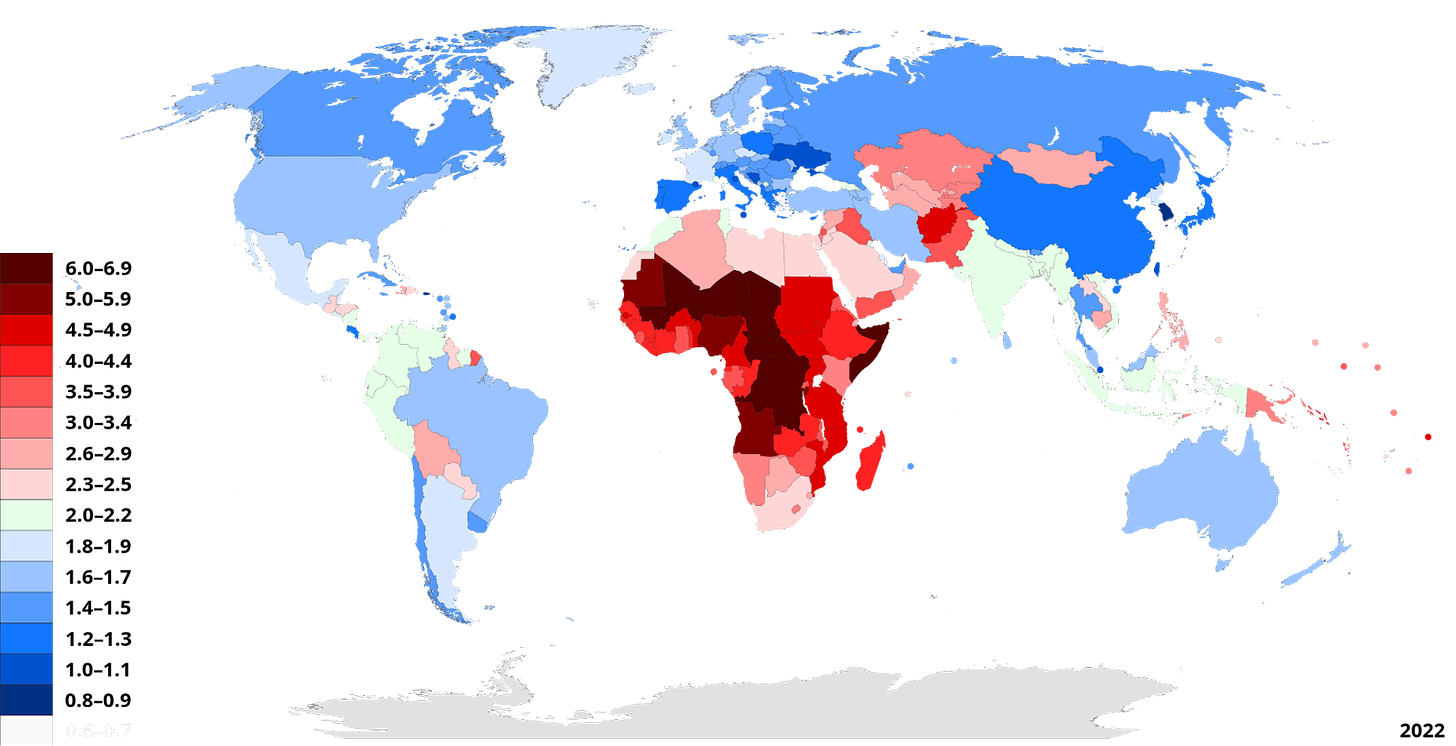
Dear Classical Wisdom Reader,
One of the most striking things I noticed when returning to our home base of Buenos Aires last month was the sheer number of babies. Babies in the park and the playground, napping in strollers pushed by exhausted parents, passed around the table among gleeful aunties, uncles, grandparents and what not.
Of course the huge influx of passport seeking, Putin fleeing young Russians has contributed greatly (they are always identifiable by the fancy prams, the snow white hair and the fact that they aren’t wearing puffer jackets in 70 degree weather).
Either way, you can’t walk a block without hearing the giggle, gurgle or gas passing cry of a small kid - or five.
This baby bonanza, however, is in direct contrast to all the places we have just been over the last five months... especially Italy where we both began and ended our journey.
In fact, Italy is famously dangerously below “replacement level” (or 2.1 children for woman). Having recorded 12 deaths for every 7 births last year, it’s considered a national emergency.
Of course they aren’t alone. Spain’s fertility rate is 1.19 per woman. Malta’s is 1.13. Not a single country in Europe is even at the baseline replacement level. France tops the list at 1.84 children per woman and the European average is just 1.51.
It’s not just in Europe either. This year in Japan, adult diapers will outsell baby diapers. As of 2022, South Korea is the country with the world's lowest total fertility rate at 0.78. Hong Kong, Macau, Singapore, and Taiwan are all below 1.3. China is at 1.15.
In Latin America too, countries are still below: Mexico is at 1.73, Brazil 1.75, Colombia 1.94... Argentina barely makes the cut at 2.17.
Even India AND Bangladesh are below replacement at 2.0. Only in sub Saharan Africa do they still make enough children to resupply the next generation.
Okay... I hear you say. I get the point. We aren’t having children any more!
And yes, because of long life expectancies... there are still a lot of people on the planet... so this huge issue is currently hidden by what is termed the “population lag effect”.
But this won’t last for long. When the older generations inevitably step into the shades, the reality of the lack of replacements is going to suddenly strike.
As schools close due to lack of demand (now!) and playgrounds empty, just take a look for yourself, wherever you happen to be. How many children per adults do you see? Walking down the street? In the park or museum? Even the most ‘kid-friendly’ locations have a staggering statistic... with hovering grandparents minding their sole grandchild.
The crazy thing about this - and don’t worry, I’ll return to the Classics soon enough - is when you point this out to just about anyone, they are not fussed. Nary a worry wrinkle produced nor contemplation of falling housing prices, uncared elders, or depleted work forces. The future of our species itself is not fretted at all.
Instead the rejoinder is almost always the same: “eh”
And yet, this thought is directly in contrast to our ancestors... who for thousands and thousands of years of civilization struggled so hard to survive. Starting in the Neolithic, Chalcolithic or Mesolithic rooms in just about any museum anywhere in the world and you will see the same sort of sculptures... ones dedicated to fertility.
Throughout time these pieces have evolved, shifted in shape and form, gained names, stories and legends. They became great goddesses and inspiring muses... Whether it was Demeter and her season changing sorrow, the Vestal Virgins preserving the sanctity of hearth, home and families, or the Ephesian Artemis, bizarrely dripping in testicles, the ancient held firm the importance of fertility.
And throughout all the incarnations and creations, the fundamental idea has remained... that of the power and gift of creating humans.
Now, as much as I’d love to continue with the stunning art of the ages to prove the point (and oh would I!)...suffice to say they cared a lot about the topic.
So the question is... how is that from the very beginnings of time, the worship of women and the gift of birth was central to civilization itself...and yet -all of the sudden- it appears not to be the case any more?
Are we approaching ‘peak people’? Are we now anti-human? Is this against our very genetic code? Our culture? Is it a problem? Furthermore, should - and can- it be changed?
As always, you can write to me directly at anya@classicalwisdom.com, reply to this email or post your comments below.
Now... onto another big subject: How can we be humane in the face of horror? Your fellow classicists discuss in today’s Monday Mailbag.
All the best,
Anya Leonard
Founder and Director
Classical Wisdom
Coming out this week: The Long Reach of Aristotle… How has his work impacted philosophy through the ages?
Monday Mailbag
RE: Can we be humane in the face of horror?
I very much appreciate this letter and the way you have approached this sensitive current topic.
These are the types of questions I find myself asking and yet it seems there are so few commentators or writers exploring these deeper considerations in a calm and measured way, amidst the horror.
Thank you very much.
Anthony
-
Appreciation...
…for today’s article on cycles of violence. I was 10 when the ‘67 Six-Day war was fought. My daughter is 36 and a child therapist, in the healing arts. I texted her that I had seen her town, Austin, had been put on high alert. Her office is located near a Jewish Community Center, and she has some Jewish clients. One had expressed another angle of anxiety to her. My daughter said she was struggling to understand what was happening and why. I realized her public school history likely never touched on this much. I wrote her back with what I knew from the late 1940s forward. Just facts, but as I was writing, I too was wondering “why must it be this way? What if the reasons given, I rejected standing on them, for once? What if Israel said, ‘No, we’re not going to push 95 % of those people further for the actions of less than 5 % of them.’”
Your example here would be well-visited upon both sides. My hopes are low it would have much effect on any capital involved (I believe most high leaders are psychopathic these days), but it is good to know it worked at least one time that can be recounted. I have heard at least one Israeli interviewed who, despite breaking down at the events of 10/7 during the interview, and having served a term in the IDF, said he encouraged current soldiers not to follow the orders put in place, the old saying of “What if they gave a war, and nobody came?“
Thanks for braving the alternative view.
Steve F.
-
Thank You Anya for Your Beautiful article!
I am grateful to learn about Sparta and Athens. The response of Sparta after the War to not "burn Athens to the ground" and enslave its people, but rather make them a friend, was inspiring! If only modern day leaders could learn from this!
As an example, the harshness of the Treaty of Versailles caused such poverty, that it laid the groundwork for the rise of a dictator... and WWII. The rebuilding of Germany after WWII was an attempt to avoid this, although not all the players had the country's best interest at heart, leading to a land grab.
I pray that people realize that we are all one and stop destroying one another, but even more, stop destroying the planet. These wars and horrible chemical weapons are doing irreparable damage to our Mother Earth. The young generation just wants a place to live and breathe before it's too late.
Thank You for giving us all the opportunity to respond. We have to have Hope, because without it, there is nothing.
Leesah
Our answers to your questions will all but certainly be different if the horror is personal. For instance, who was standing to tell the women brutalized by Hamas monsters that the women should see their violators as human? That said, the rest of us must try to do so, assuming we are not in the “to kill or be killed, or allow other people to be killed” situations.
Not pretty, is it?
Charles L
-
Anya,
I have read quite a bit of the history of modern Israel, and it seems clear to me that when they first established their nation, and later after the 1967 and 1973 wars, the Israeli position was to attempt to treat the Palestinian inhabitants kindly and justly. And many, perhaps most, Palestinians were willing to accept those conditions.
However, there were some who were not, and who sought opportunities to terrorize the Jewish population, to cause them to enact retribution, which would then radicalize the Palestinians as well. And the Israelis were not completely innocent in this either.
However, one major difference is that the Israelis have been much more strict in enforcing laws against their own who act cruelly against the Palestinians.
Can you imagine that if a group of young Israeli men had assaulted the people of Gaza or the West Bank with the ferocity and cruelty that Hamas just carried out against Israel, and that these young men who survived then fled back into Israeli territory, that they would then have been hailed as heroes?
I don't think so. Rather, they would be arrested, tried, and the full penalty of the law would fall upon them. And the Israelis in general would see them as despicable. Quite the contrast to what happened in Gaza.
I am sure that horrible things will happen to the residents of Gaza, but this is a consequence of those same people not being willing (or perhaps able) to police their own criminals. For two different ethnic or religious groups to live in harmony, it is necessary that both groups police their own citizens to prevent such actions as are now happening in Israel and Gaza.
If members of one group carry out atrocities against the other, and their own people support them and call them heroes, or at least do nothing to restrain them, then those who are attacked will have no recourse but to respond as the Israelis are now doing.
I grieve for what is happening.
Gordon F.
Cuenca, Ecuador
-
Dear Anya,
I want to congratulate you on your initiative, "Critical Wisdom", which I find interesting and didactic.
Your article "Can We Be Humane In the Face of Horror?" was very eloquent and poignant. Let us hope that civil and rational discourse will take place regarding this theme.
Kind regards,
Dimitris
You've raised good questions. I think what is more important than answers are asking questions.
Humaneness when personal tragedy is involved instead of retaliating, when we lower our pride and offer forgiveness is a long order but unless someone first offers the olive branch, we will have to wait for a long, long time.
Such actions begin at home. Bob Beamon, the Olympics long jump champion from 1960-1980 has this to say about champions : champions are not born on the field or track. They are born in the day-to-day events of everyday life, in how we use our God given gifts and abilities.
Thus, unless restraint in small matters is observed in the day-to-day events of daily life, it is a distant possibility that restraint will be able to be observed in war.
It is only a person who has developed a humane character through everyday practice of virtues that will be able to exercise restraint in war.
Thus, to the question of whether we can be humane in the face of horror, if we have not been humane in the day-to-day events of everyday life how can we be humane in the face of horror?
Being humane is a question of having a sublime character which can only be developed through constant practice....
So, this discussion is revealing enough to answer that question.
Orville R.
-
With God, all things are possible... but without God, it is not possible for us to reclaim our true humanity. That is what the Bible teaches us.
I know that my answer flies in the face of what many would say is the root cause of the conflicts in the Mideast; i.e. religion. But I believe that is a superficial analysis. Jews, Arabs and Christians believe in a God of mercy and love. Embrace our God and we will find peace.
Respectfully,
Philip T.
-
Anya:
I just read your short article titled “A Palestine Viper”. I must confess that the title was significantly more provocative than the actual contents. I enjoyed the fact that you raised a serious question without the typical judgment surrounding the current tensions in the middle east.
You asked "Is it possible to break the vicious cycle?" To ensure we see everyone as humans.
I'll start by saying that I don't pretend to have the wisdom, knowledge, and diplomatic skills necessary to remotely address the question.
I'll also add that in all candor I am not terribly optimistic that a peaceful solution can be found. Too much history and bad blood has passed to allow the opposing sides to find a solution. In order to make peace, you need two willing parties who actually want to make peace. I'm afraid that is simply not the case in the Middle East.
The fundamental conflict is not simply a dispute over territory or governance....it is a clash of cultures. How do you make peace with a culture that literally raises their children from birth to hate and want to kill the other side? Make no mistake, there are fundamental differences between the cultures. Israel is a culture of life. Hamas represents a culture of death. They relish death. How do you negotiate peace with people who kill babies? Babies???? It's incomprehensible to the west that people can be this evil, yet they are. This is not to excuse many of the abuses of Israel but it doesn't require much research to realize very quickly that there is a fundamental difference between the two sides that makes compromise an impossibility.
The only possible path I can see to peace is quite unlikely IMO... the Palestinians must find a way to completely reject and eliminate Hamas. Change must come from within but I've seen nothing to lead me to believe that they have either the where-with-all or capacity to cleanse themselves of Hamas.
I'm sorry for being so pessimistic but I simply don't see a path that leads to a peaceful resolution. I hope I'm wrong.
John R.
-
I just read your article from the Wiggins sessions and found it interesting and thought provoking. The only thing I didn't understand and couldn't find an answer for was why the driver jumped out and ran to those other guys to kill a snake? What was the purpose? How did he even know what they were doing? Why would you stop your car trip in the desert to do that anyway? I'm genuinely curious. Thanks for the unique article.
Best,
Adam
[Anya: I’d like to note that the original article was re-published by a different publication with the title “Palestine Viper” (not my title). However, in answer to your question and in all honesty, I'm not 100% sure why he did that. We didn't book the driver in advance or anything, he was just waiting at the border near Aqaba, Jordan. He didn't speak much English and it was not a fancy car. My feeling was that he was from the desert and that it was considered fun/protective to kill dangerous snakes... perhaps he knew the men? Or he was just able to recognise what was going on and wanted to join in the 'fun'.]
Classical Wisdom is supported by readers like you. If you appreciate our work, please consider becoming either a free or paid subscriber.
Más info en frasco@menadelpsicologia.com / Tfno. & WA 607725547 Centro MENADEL (Frasco Martín) Psicología Clínica y Tradicional en Mijas Pueblo #Psicologia #MenadelPsicologia #Clinica #Tradicional #MijasPueblo
*No suscribimos necesariamente las opiniones o artículos aquí compartidos. No todo es lo que parece.

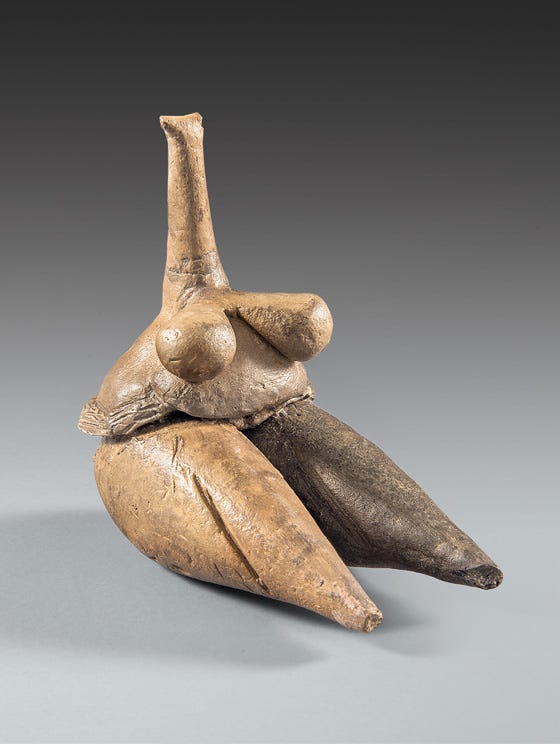
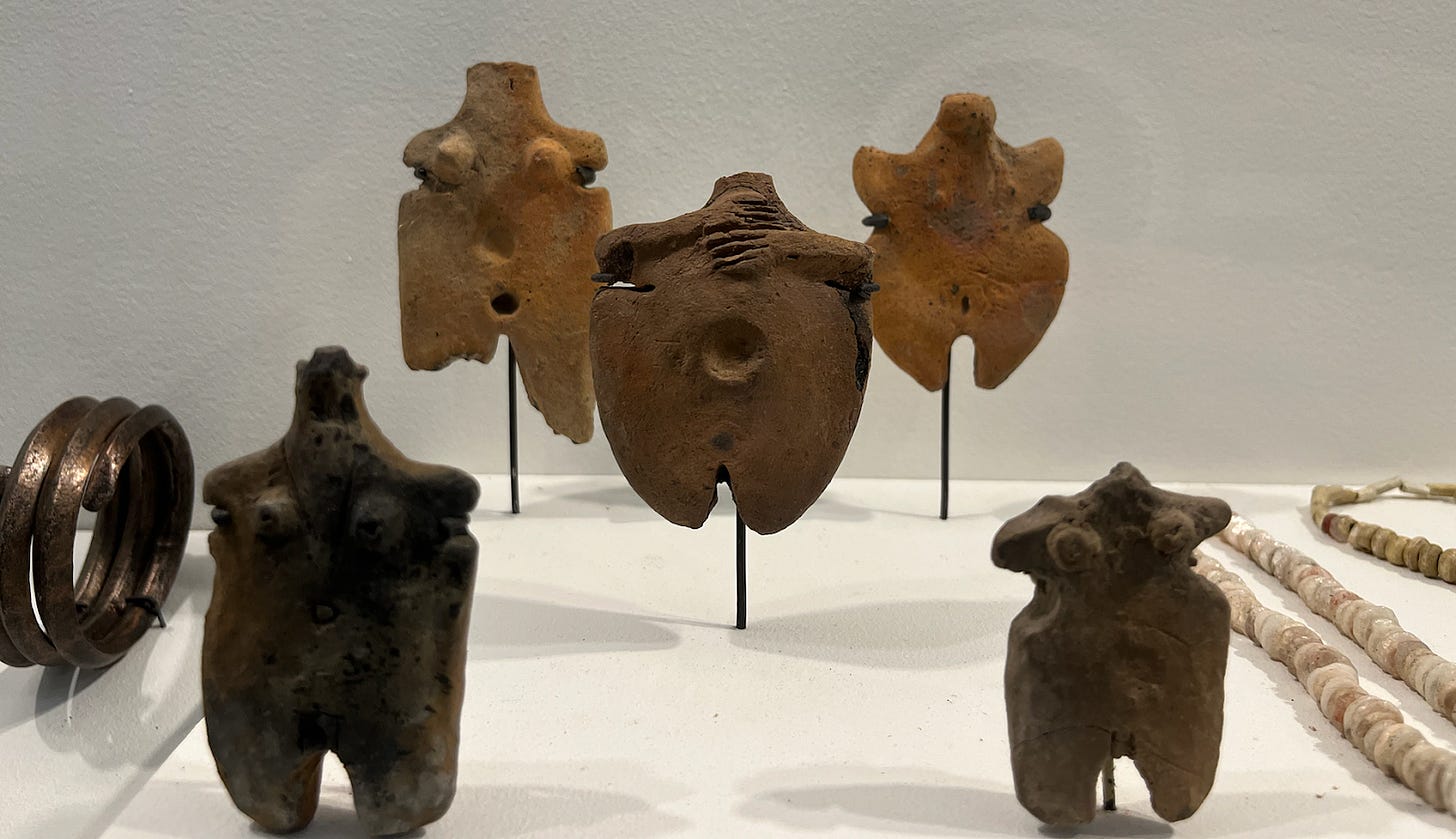
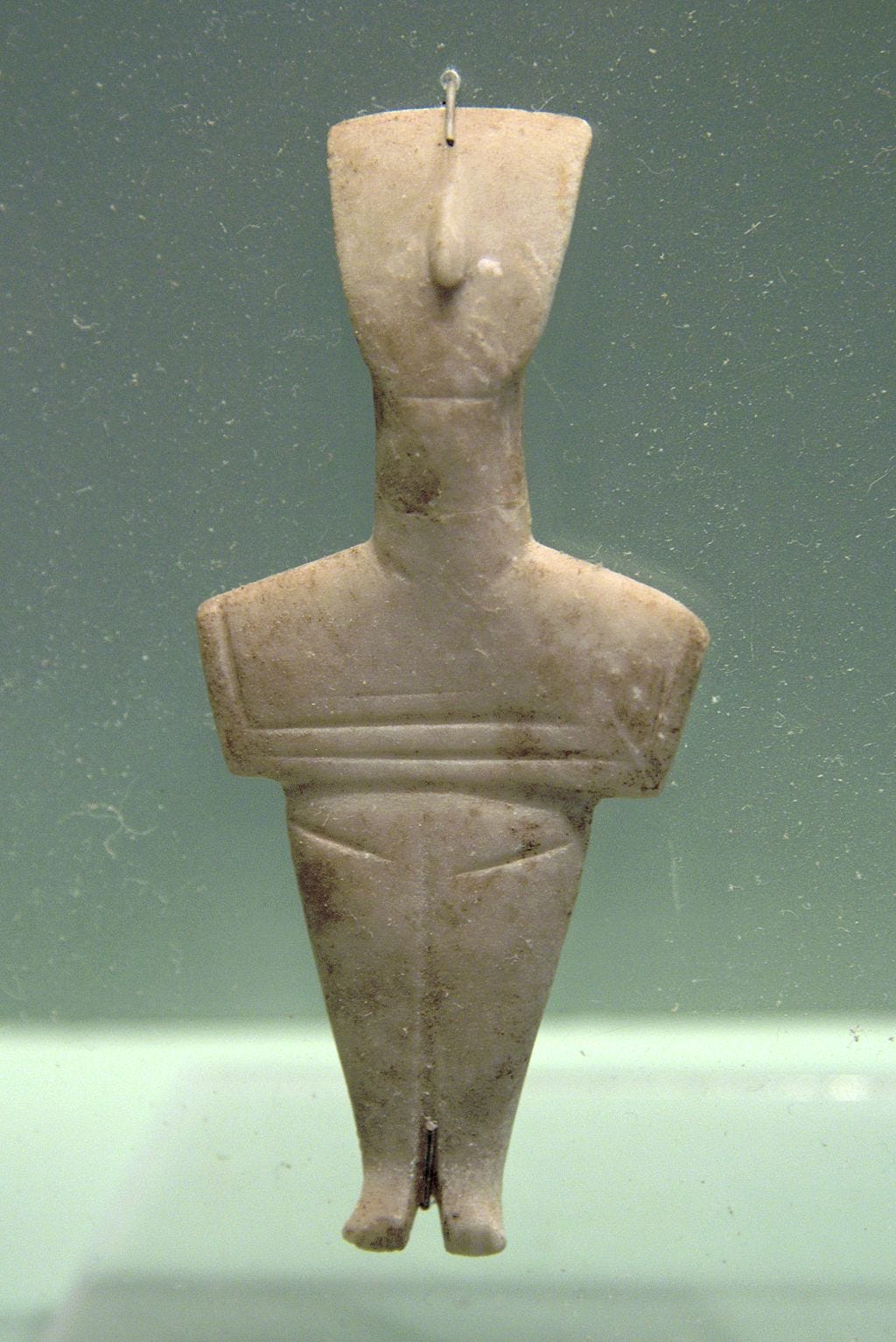

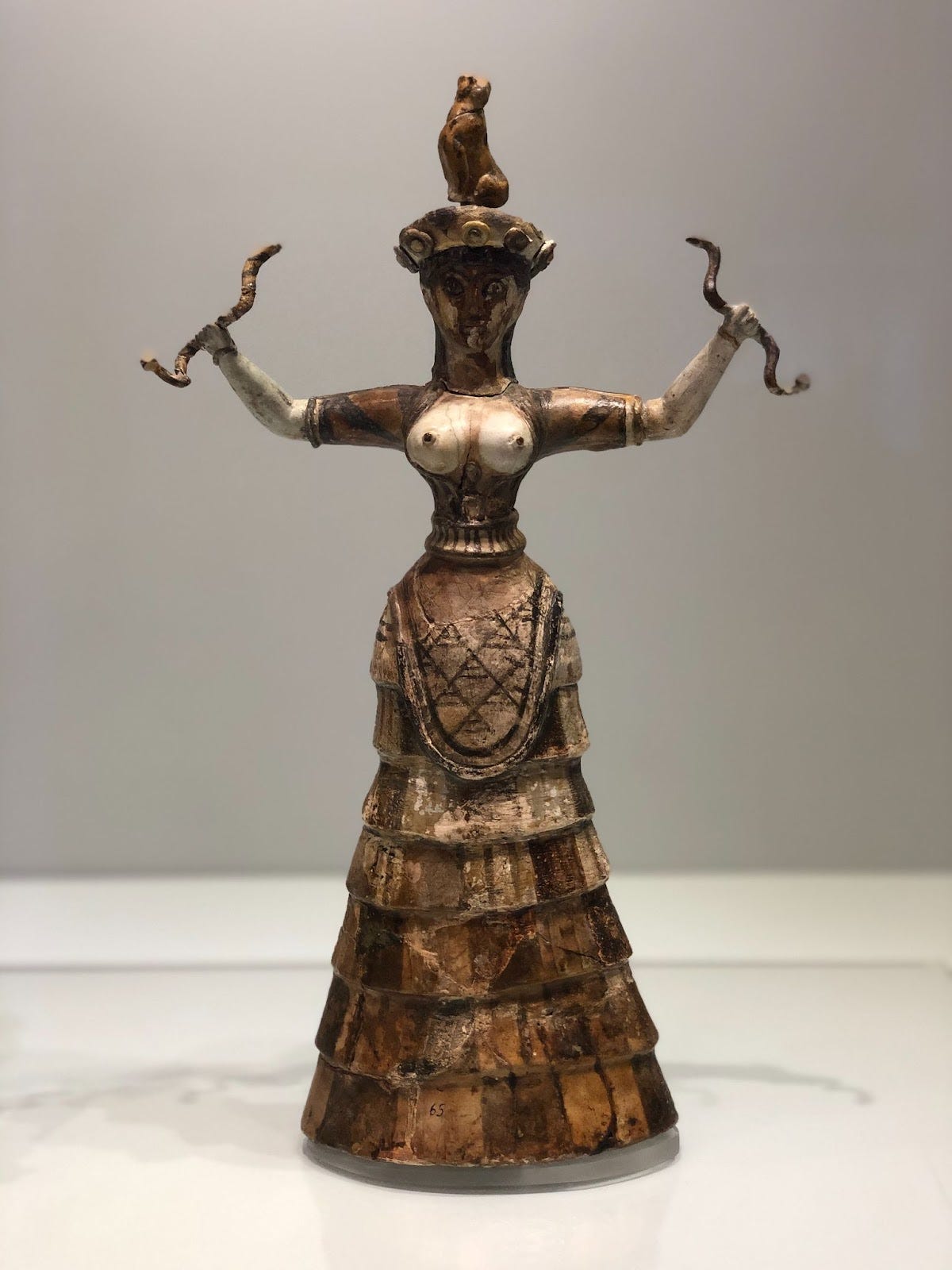
No hay comentarios:
Publicar un comentario